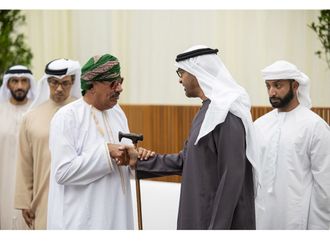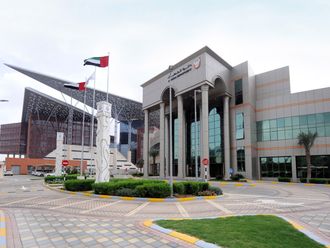Abu Dhabi: The UAE human rights watchdog has called for collective employee representation and a voice at work, said an activist.
Mariam Al Ahmadi, deputy chairman of the labour rights committee at the UAE Human Rights Organisation, said proper worker representation and a voice can encourage understanding, trust, better decision-making and improve workplace relations and organisational effectiveness.
"Effective systems of representation can help the development of workplace partnership and encourage the workforce to identify more closely with the organisation's performance. Workers more readily understand and accept even unpopular decisions, as long as reasons are given and their views are genuinely taken into account," Al Ahmadi said.
The UAE Human Rights Organisation, she said, suggests that a commission made up of representatives of workers, employers and the government should be set up to defend workers' rights and support them in their demands.
"The proposed commission would be responsible for improving the working conditions of UAE citizens and expatriates. They will also work to improve labour relations, ensure regular payment of wages and resolve disputes between workers and employers."
The nine-member commission, she said, should be elected from among workers, businessmen and government officials (three each).
Deterrent
Al Ahmadi said the UAE has laws and rules that in fact protect the interests of workers, but the proposed provisions in the new law will also serve as a deterrent to employers who continue to exploit their expatriate workers.
"This exploitation tarnishes the image of the UAE - a country that values the contribution its foreign work force has made in its development."
Other Gulf States, Kuwait and Bahrain, have had unions for years. They have a significant national labour force in the private sector and unions were needed to protect the interests of those workers.
Oman also has amended the labour law to allow for the formation of syndicates.
Officials said the move by the UAE to establish unions will boost the emiratisation scheme. "Trade unions would make the private sector more attractive to Emiratis who otherwise have been reluctant to join private business because they, among other reasons, do not want to be at the mercy of employers. But they will certainly take their chances in the private sector if they are certain their rights are protected," an official said.
In principle: Labour Ministry not opposed to unions
Dr Ali Al Ka'abi, Minister of Labour, said his ministry did not oppose - in principle - setting up trade unions to represent workers' interests. "However, the UAE has not yet come up with a final form of these unions that makes a balance between national interests and international requirements."
Dr Anwar Gargash, Minster of State for Federal National Council Affairs, said the Ministry of Labour has successfully begun holding consultative meetings on improving labour conditions, including worker representation. "Whilst we are committed to strengthening labour relations, representation is an issue that requires an approach which suits the demographic realities in the UAE. The consultative meetings present a significant opportunity to continue our progress in improving the labour sector," said Dr Gargash, who is also chairman of a committee tasked with monitoring the UAE's image abroad.












